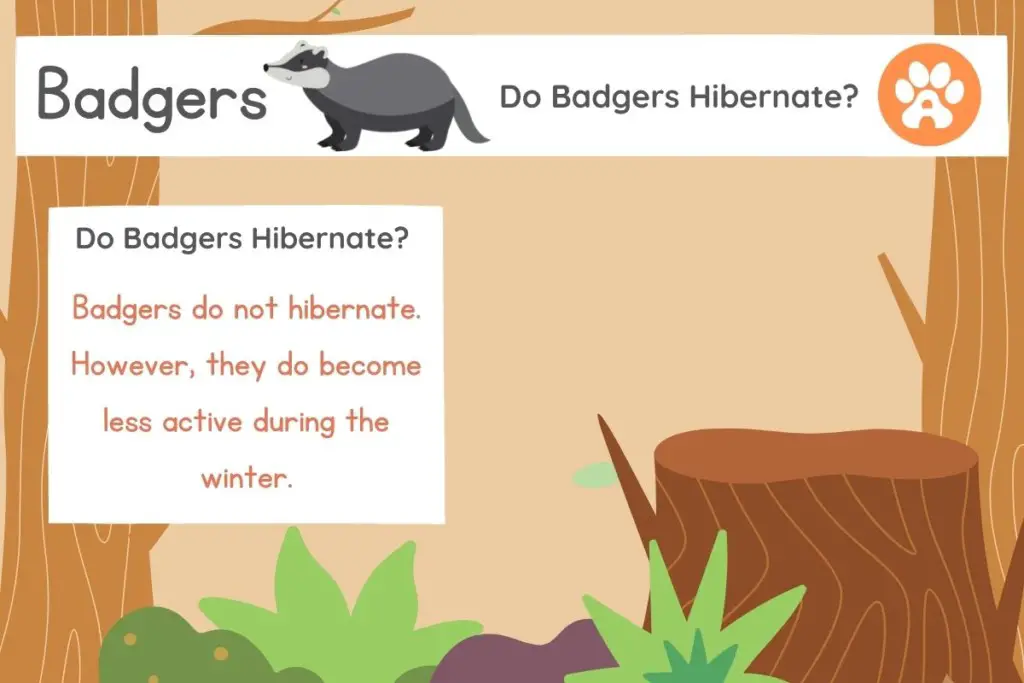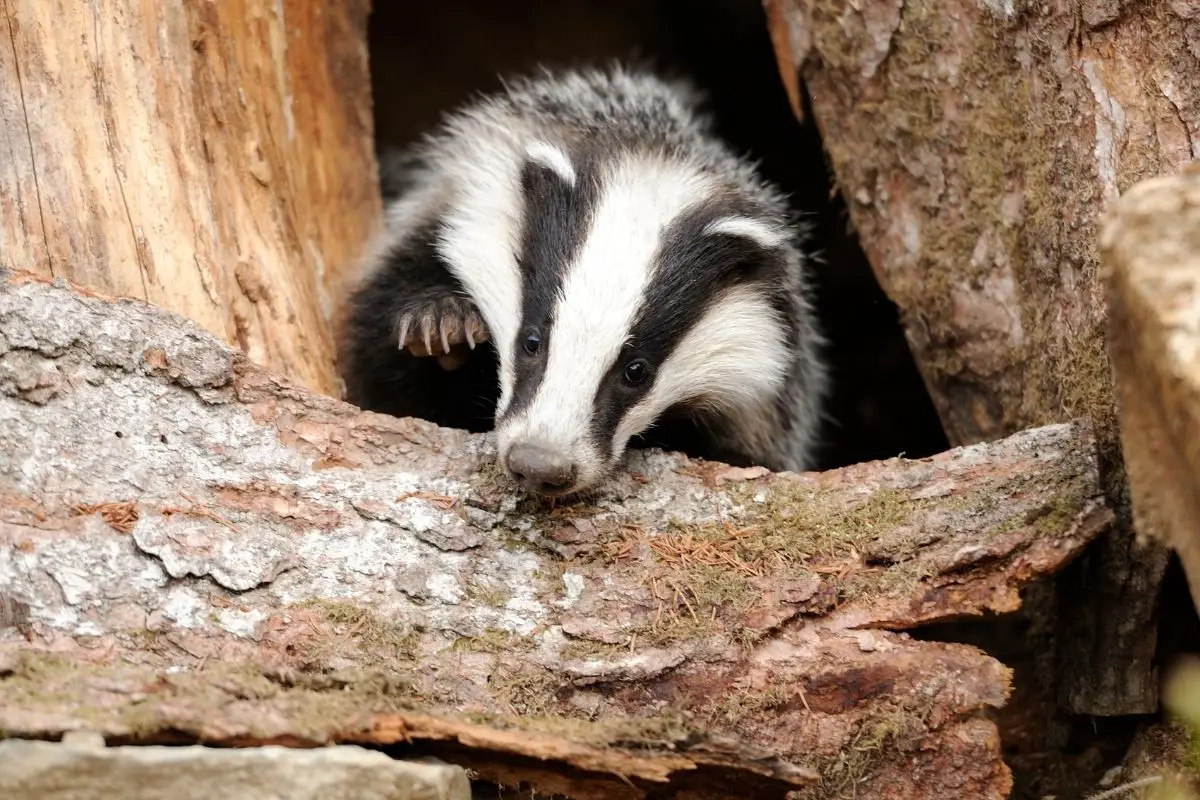With a lifespan of nearly a decade in the wilderness and sometimes even longer in captivity, some people may speculate that badgers must hibernate during the winter season.
Do Badgers Hibernate?
While badgers do not hibernate, they don’t really have the same level of activity or urgency during the winter season. It’s much less likely that you’d find a badger building a den or scavenging for supplies during the coldest portion of the year.
Badgers will spend much of their time underground during the winter season. It’s much warmer underground and this provides the level of safety that badgers expect during hazardous weather conditions that are much colder than what makes a badger comfortable.
As things start to warm up, badgers will slowly start to expand their schedule and start their routine all over again. This can include building new dens within their territory and scavenging for supplies. It may also include an expanded hunting urgency with many more hours spent looking for potential prey in the wild.

Why Don’t Badgers Hibernate?
While badgers don’t hibernate, they do take steps to prepare for the cold weather that is expected in the winter. They usually increase their weight in the fall season to prepare for a long winter. They will spend the coldest portion of the year sleeping in their den, also known as a “sett.” Source.
See our ultimate guide for Badger Setts
For much of this time, badgers simply survive off of their extra fat and when the cold weather departs, they will emerge from their den and prepare for the spring. It’s important to remember that badgers are nocturnal, which can have an impact on their method of survival.
Having the nocturnal trait doesn’t necessarily prevent the concept of hibernation from taking place with badgers, it’s just fairly unnecessary for badgers to hibernate during the winter if they can adapt so exceptionally well to their local conditions.
See our article for Nocturnal Badgers
How Do Badgers Survive in the Winter?
Badgers commonly reduce their activity during the winter months of the year because they don’t want to be exposed to the cold weather. Hunting isn’t ideal during winter because many other animals are hibernating or they are simply not out and about like they would be during other times of the year.
This makes the concept of hunting during the winter very awkward for badgers because there isn’t much to be gained. The risks are much higher than the potential reward, which is a calculation that takes place every single day of the year for a wild animal trying to survive in the wilderness.
During the spring, summer, and fall seasons, there are many more hunting opportunities for badgers. The risks are much lower and the potential is much greater. These are only a few of the reasons that badgers are so incredibly inactive during the winter.
Badgers aren’t the only animals that reduce their activity without going into a full hibernation during the wintertime. Squirrels and rabbits are two similar examples of wildlife that don’t hibernate, but they do limit their activity. Some badgers have stayed inside their dens for as long as 70 days, through the winter. Source.
When Do Badgers Increase Their Activity After Winter?
You will notice a significant increase in badger activity in March or April. During the Spring, it starts to warm up and badgers start to return to their regular routine of hunting, scavenging, digging, and building.
It is common for badgers to slowly increase their activity until they ultimately reach their busiest time of the year in June or July. The mating season will be over by the summertime and badgers may even be found with their cubs around sunset, if you’re lucky.
Badgers go through this same schedule year after year, which ultimately stays with them until they pass away. The same process starts with their cubs at a young age and will continue to pass on from generation to generation of badgers.
Do Honey Bears Hibernate?
Honey bear badgers do not typically live in areas with extreme winter conditions. However, just like other badgers, they do sleep for weeks at a time turning the winter months. This is not the same as hibernating, but inside their den, they have little else to do and do not want to burn up the fat that they do have doing activities.
Related Questions
Are badgers capable of adapting to winter conditions?
Many animals are incapable of adapting to winter conditions, which is why they ultimately hibernate to survive the winter. Badgers are capable of adapting, but there’s still a lot of risks, which is why they simply limit their activity instead of hibernating.
How do badgers survive without food in the wintertime?
With reduced levels of activity, badgers can’t rely on as much food as they would during other times of the year. Instead, they must rely on their own excess body fat to help survive with limited food in the winter months.
- Hero Farm Dog Survives Epic Battle with Coyote Pack - December 9, 2024
- The 10-Minute Bedtime Routine That Changed My Dog’s Sleep Forever - November 29, 2024
- Creating a Safe Space for Nervous Pets: Your Guide to Pet-Friendly Havens - November 25, 2024

